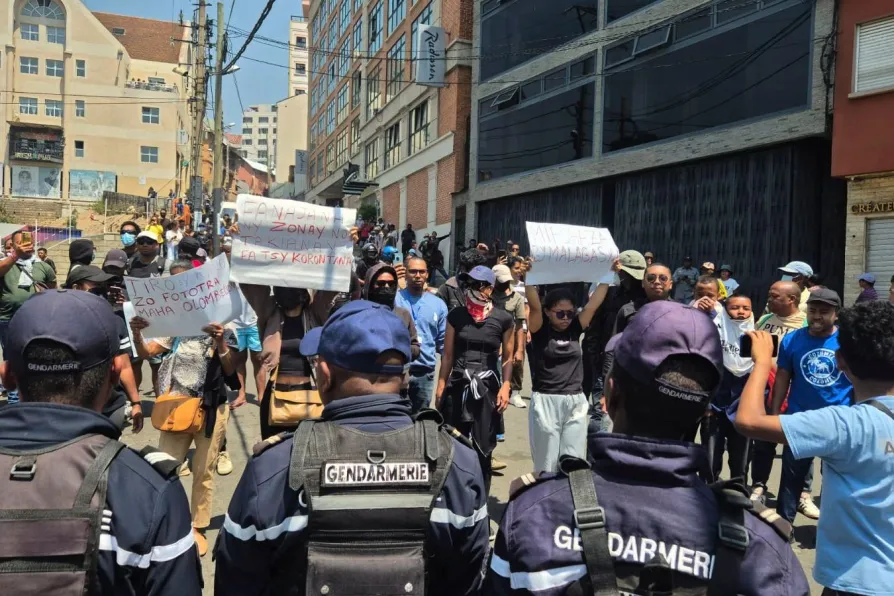
 Demonstrators hold up placards reading "water and electricity are basic human rights," "Malagasy people, wake up," "Let's not remain in the dark with our yellow cans" in Antananarivo, Madagascar, September 25, 2025
Demonstrators hold up placards reading "water and electricity are basic human rights," "Malagasy people, wake up," "Let's not remain in the dark with our yellow cans" in Antananarivo, Madagascar, September 25, 2025
THE President of Madagascar, Andry Rajoelina, has dissolved the country’s government after mass demonstrations over power and water shortages.
The protests turned deadly, with at least 22 people killed and more than 100 others were injured, according to the United Nations.
The protests, which began last week, were led largely by young people, angry over deteriorating living conditions in the capital, Antananarivo.
Observers say the protests represent the most serious challenge to President Rajoelina’s authority since his re-election in 2023, and the largest wave of unrest the island nation has seen in years.
Protesters gathered at Antananarivo’s main university on Monday before attempting to march into the city centre, according to footage broadcast by the local television channel 2424.MG.
Police fired tear gas to disperse the demonstrators, as authorities enforced a dusk-to-dawn curfew that has been in place since last week. Security forces have also used rubber bullets to try to clampdown on protesters.
Looting has been reported at supermarkets, appliance shops and banks across the capital of 1.4 million people. Homes belonging to politicians have also been attacked in recent days.
In a televised address on Monday, President Rajoelina acknowledged the public anger and apologised for his government’s failings.
The president told broadcaster Televiziona Malagasy: “We acknowledge and apologise if members of the government have not carried out the tasks assigned to them.”
He said: “I understand the anger, the sadness and the difficulties caused by power cuts and water supply problems. I heard the call, I felt the suffering, I understood the impact on daily life.”
The demonstrations have been driven by frustration at years of economic hardship. Madagascar, an island nation off Africa’s south-east coast, is one of the region’s poorest countries.
About 75 per cent of its 30 million people lived below the poverty line in 2022, according to the World Bank.










